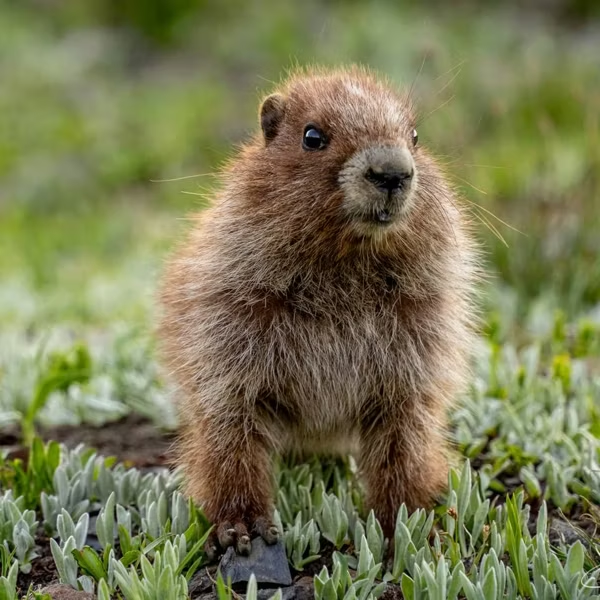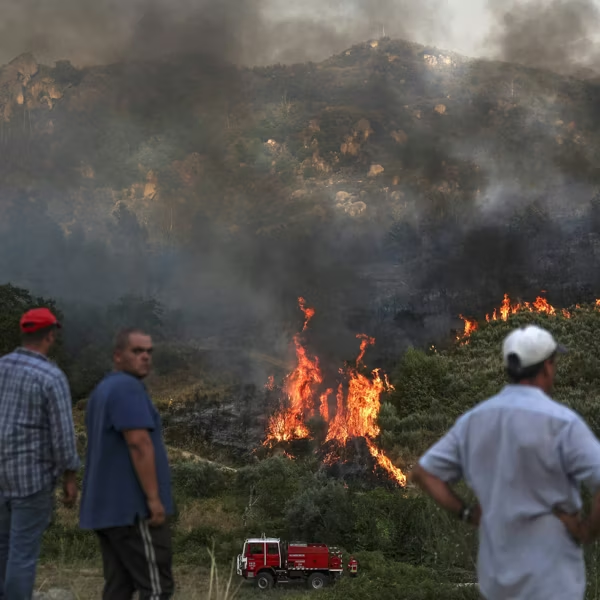We are at a crucial turning point for the future of life on Earth. For decades, deforestation, overfishing, corporate agri-business mega-farming, and extraction of natural resources have contributed to the disappearance of species at an alarming rate that is unprecedented in human history. Between climate change and ecosystem loss, one million species are now threatened by extinction.
This COP15 is an opportunity for governments to forge a new relationship with nature.
The objective for governments: negotiate the adoption of the Post-2020 Global Biodiversity Framework. This agreement, if sufficiently ambitious, could protect biodiversity globally-all the ecosystems and species present on Earth, including humans.
The stakes are high. Protecting nature is central to our livelihoods, our health, our well-being, and our welfare, as well as mitigating the risk of climate disasters and adapting to climate change. Here are our three critical demands to protect biodiversity globally:
1-Secure a rights-based framework that respects the rights of Indigenous Peoples and supports local communities
Indigenous Peoples play a leading role in conserving nature and designing a sustainable future. Evidence from every continent consistently proves that Indigenous Peoples are the most capable and responsible stewards of biodiversity. It is no surprise that 80% of the world's remaining biodiversity is concentrated in Indigenous territories, which account for one fifth of land and coastal marine areas globally.
But, in many parts of the world, conservation models continue to dispossess Indigenous Peoples from their territory, evict the traditional stewards of the land, and prohibit traditional harvesting. This violent colonial approach to conservation does little to protect the environment and commits direct harms to people.
COP15's final decision must recognise the rights and roles of Indigenous Peoples. Effective conservation of biodiversity can only be achieved if the rights of Indigenous Peoples, including land rights, are guaranteed and their role in nature conservation is well-funded and recognised at both the management and decision-making levels. This will only be achieved if governments adopt a cooperative approach and move away from "fortress conservation" models. Instead, we need to recognize customary lands as a key step to protect biodiversity, address inequalities, and achieve climate goals.
2-Agree on a strong Global Biodiversity Framework to protect at least 30% of land and sea globally by 2030
To prevent further ecosystem degradation, a global safety net is essential. As things stand currently, more than 100 countries have already committed to the 30x30 goal of conserving at least 30% of the world's land and water by 2030. This is the bare minimum, considering that up to 50% of the world's land, freshwater, and oceans must be conserved to maintain global biodiversity and ecosystem services, according to a report by the Intergovernmental Panel on Climate Change (IPCC).
This target can be used as a lever for much-needed political commitment to protect nature outside of Indigenous Lands in countries that do not have enough protected areas, or where protected areas exist but are not in good condition or are protected only on paper (for example, in parts of Europe).
As with any global conservation target, 30x30 must put the rights of Indigenous Peoples and local communities front and center.
3-Ensure implementation with sufficient resources and fair financing
For decades, parties at the Convention on Biological Diversity have been good at setting aspirations but remain weak on implementation. We need clear mechanisms to fulfill and measure biodiversity protection.
All parties at COP15-especially the rich countries from the Global North who have profited the most from commodifying nature -must come to the table with the funds needed to protect biodiversity. A successful funding mechanism needs to ensure that countries in the global South are supported to protect and restore ecosystems subjected to destruction for the benefit of corporations and a wealthy few in the global North.
They must also tackle financial streams that fund and incentivize the destruction of nature. Our natural world is collapsing and, right now, the world is spending more to destroy it than to save it. There is a major biodiversity finance gap-estimated by researchers to be around USD $700 billion. The current draft of the Post-2020 Global Biodiversity Framework suggests that redirecting money from harmful subsidies is key to our future, and that the biodiversity finance gap could be closed by at least USD $500 billion just by reducing harmful subsidies alone.
What you can do
It's time to transform ambition into action, because our lives depend on it. This COP15 is an opportunity for governments to forge a new relationship with nature.
Let's make sure governments don't forget what's at stake: Join our #NewDeal4Nature Social media Storm on December 6 & 7 to remind world leaders what they can do to help build up resilience to combat the climate crisis and future epidemics, and help protect people and the planet.




